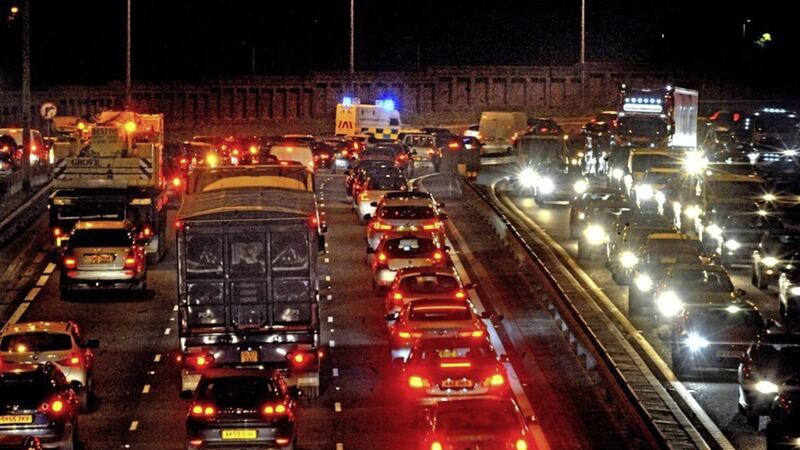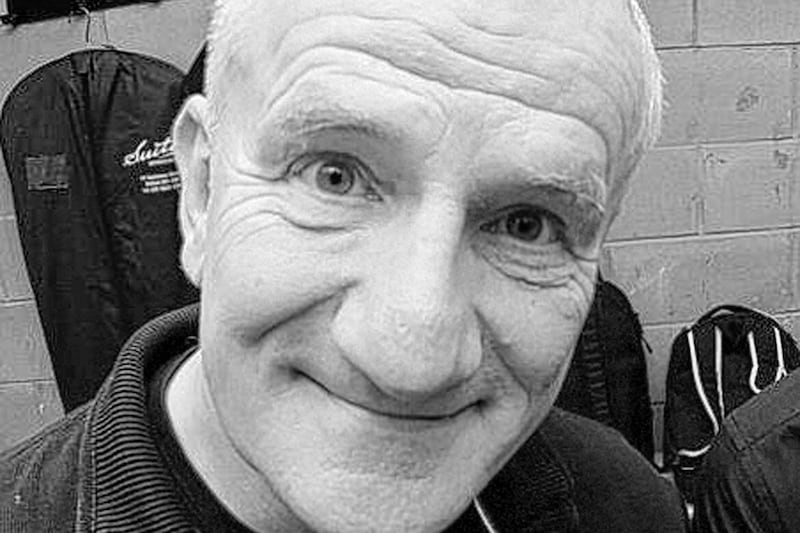I drove the length of Ireland last weekend. Well, if I'm being honest, it was my friend Damian McParland who did the actual driving, but I did fulfil an important function as co-driver, giving a running, if unwelcome, commentary on his driving deficiencies.
We drove from Belfast to Killarney. I haven't been that far south in decades and was stunned that 80 per cent of our trip was on new motorways. We covered the 292 miles in just over six hours, including a stop for a coffee.
It's estimated the journey can be done in just under five hours. The last time I did the same trip, it involved a gruelling seven-plus hours of B-roads and traffic jams in a multitude of small towns.
The few towns I travelled through this time impressed me as being both prosperous and modern. The Ireland of decay and dilapidation I'd remembered as a child was gone, replaced by a modern, confident country with an advanced road infrastructure. To my shock and some embarrassment, I realised I was a stranger in my own country.
Having gone to school in the Republic in the 1970s, my memory of it had frozen as a place apart, detached from modernity. The social and economic austerity of the de Valera years still clung to the country like a shroud, and the Catholic Church had a vice-like grip on it's public morals.
All that is gone. The seismic changes in the Republic haven't been confined to the passing of liberal legislation on divorce and gay marriage, but are visible in its buildings and infrastructure.
While you still pass a multitude of grottos and other Catholic furniture on the roadside, they are now - for better or worse – extraneous artefacts in a modern state which no longer looks to Rome for direction.
As Ireland extends its motorway system, we here can't manage a connection between the M1 and M2; as for a motorway between Derry and Belfast, well that remains a pipe dream for the next generation to achieve.
Where once we northerners joked about knowing that we had crossed the border due to the south's poor roads, the joke is now on us - I knew we had returned to the north when we ran out of motorway.
I won't insult the intelligence of my loyalist friends by arguing for a united Ireland based solely on the grounds of economic prosperity. I would, however, suggest they take the trip I did and then make a rational comparison between what they could have and what they presently settle for.
As we languish with an Assembly exhibiting the forward momentum of a children's carousel, the south has blossomed into a modern European nation - confident, secure, and devoid of the antiquated socio-economic trappings of it's past.
While a small town, Killarney has a cosmopolitan feel, sporting a multitude of excellent hotels, restaurants, and bars.
Americans - who once accounted for the majority of its visitors - have yet to return, but their place has been filled by 'staycationers' from all parts of the island.
The days of Darby O'Gill are long gone, but if you visit a certain Killarney bar you may meet a local legend called Sham who I'd argue speaks the language of the 'little people'.
We bumped into Sham on our last night in the town and it made my trip - look up 'Killarney Sham' on YouTube.
****
MOVING now from little people to very big people in the shape of 6ft 9ins heavyweight boxing champion Tyson Fury - the best heavyweight in the world after beating Deontay Wilder in Las Vegas for the second time last week.
His journey has been anything but smooth, as he was initially viewed by the boxing world as something akin to a circus freak.
His latest win cements his reputation as the greatest heavyweight boxer of Irish extraction since the great John L. Sullivan.
Sullivan became the first heavyweight champion of gloved boxing in 1889, beating Jake Kilrain in 75 rounds. Watching Fury, I get the impression he is cut of the same cloth, being a man who refuses to lie down.
I've had serious reservations about Fury's utterances over the years, but as a boxer, he now reigns supreme and has earned the right to a happy and contented retirement.
Yet, if boxing history proves anything, he now faces the most dangerous stage of his career - he will now have to deal with the multitude of circling sharks waiting to relieve him of his winnings.









